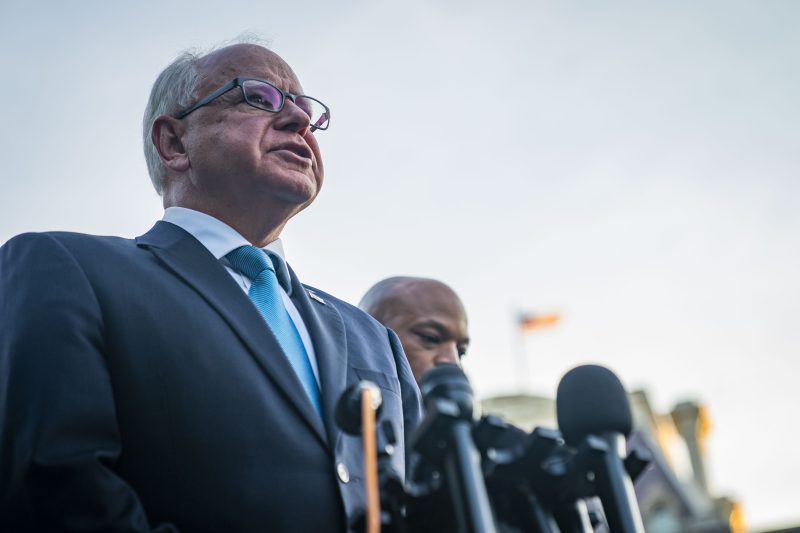The selection of Tim Walz as Kamala Harris’ vice presidential nominee has sparked a flurry of speculation and analysis across the political spectrum. Here are five key takeaways from the decision:
1. Midwestern Appeal: Tim Walz’s roots in Midwest politics could give the Democratic ticket a crucial advantage in key battleground states like Wisconsin, Michigan, and Pennsylvania. His track record as a congressman and governor in Minnesota resonates with voters in the region and could help Harris attract support from traditionally Republican-leaning areas.
2. Experience and Expertise: Walz’s background as a former educator and National Guard veteran brings a wealth of experience to the table. His emphasis on issues such as education, healthcare, and veterans’ rights could bolster the Democratic ticket’s credibility on these important policy areas.
3. Unity and Diversity: By selecting Walz, Harris has showcased the Democratic Party’s commitment to unity and diversity. Walz’s moderate stance on certain issues could help bridge the gap between the party’s progressive and centrist factions, appealing to a broad spectrum of voters across the country.
4. Governing Competence: As the governor of Minnesota, Walz has demonstrated his ability to govern effectively, particularly during times of crisis such as the COVID-19 pandemic. His steady leadership and pragmatic approach to governance could reassure voters who are looking for a competent and capable leadership team to navigate the country through challenging times.
5. Progressivism and Pragmatism: While Walz’s selection might signal a move towards a more moderate stance for the Democratic ticket, his progressive credentials on issues like climate change and healthcare are still intact. By choosing Walz, Harris has struck a delicate balance between progressivism and pragmatism, positioning the ticket to appeal to a broad cross-section of voters while maintaining a strong commitment to key progressive values.
In conclusion, the selection of Tim Walz as Kamala Harris’ vice presidential nominee represents a strategic choice that could help the Democratic ticket attract support from key swing states, showcase unity and diversity within the party, and demonstrate a commitment to competent governance and progressive values. The decision underscores Harris’ political acumen and sets the stage for a dynamic and competitive presidential campaign.
